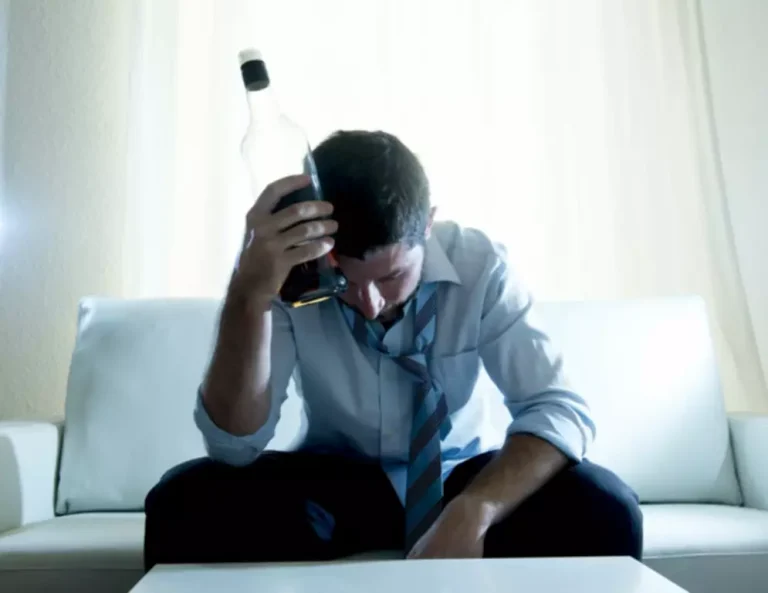How Alcohol Destroys Relationships: Understanding the Emotional and Mental Impact

The uncertainty of the addicted individual’s behavior can make it challenging to plan for the future or feel secure. As a result, many family members experience heightened anxiety and even physical symptoms related to chronic stress. Men in the Red Pill community exhibit Dark Triad traits—narcissism, psychopathy, and Machiavellianism—using manipulation, self-interest, and emotional control in relationships, often prioritizing their own needs over emotional connection with their partners. A recent study found that ghosting and stress are linked to maladaptive daydreaming and vulnerable narcissism, with mindfulness reducing, and rumination amplifying, these effects. As inhibitions decrease, individuals may become more assertive or dominant, while others may become more passive or submissive. This can disrupt the balance of power and equality within the relationship, potentially leading to conflicts or feelings of resentment.
- That is, it may be that higher levels of positivity exhibited by female alcoholics (Noel et al., 1991) are characteristic of females in general, rather than female alcoholics.
- Finances are about more than the dollars earned; they also include earning potential.
- Research has shown that excessive alcohol use can lead to serious family consequences, including intimate partner violence and even divorce.
- Although this study found that there was no placebo effect, therefore no reason to believe that interaction behavior was due to alcohol expectancies, there is reason to believe that this finding would not generalize to other studies.
You’ve Replaced Certain Activities With Drinking
Although there is evidence to suggest that frequent alcohol intake may predispose to weight gain or obesity over the long-term, this effect is not strongly reflected in the recent research. First, it has been found that alcohol intake increases energy expenditure, likely due in part to the fact that it has a high thermogenic effect 53. It has also been suggested that some of the energy ingested as alcohol is ‘wasted’, due to the activation of the inefficient hepatic microsomal ethanol-oxidizing system (MEOS).

4. The effects of alcohol use on marital violence

By recognizing the potential risks and actively addressing them, couples can work towards fostering a strong foundation built on trust, honesty, and open communication. For example, if you work and see most of your close friends remotely, the impact on your relationships may manifest differently than someone who lives in a multi-generational household and works several in-person jobs. Despite the advantages of using the adaptive and maladaptive hypotheses as heuristics for guiding past research (and as an interesting storyline in this review), most researchers and clinicians would agree that they grossly oversimplify what are considered highly complex phenomena. It is no surprise, then, that comprehensive theoretical models of risk that attempt to explain all of the possible mechanisms by which alcohol use contributes to marital success or failure are elusive. Often people will notice that they are fighting more with their partner when either or both of the individuals have developed an unhealthy relationship with alcohol. Also, if you’re fighting when you are drinking, you may say or do things that you will regret or that you would not do if you were sober.
Signs That Alcohol Is Causing Issues in Your Relationships
- Marital satisfaction is a common way to distinguish between maritally distressed and nondistressed couples and has been an integral part of marital research for many decades (e.g., Terman, 1938).
- For instance, the use of single-item marital satisfaction variables (McLeod, 1993) and single-item heavy alcohol use items (McLeod, 1993; Perodeau & Kohn, 1989) raises questions about the reliability and validity of the measures.
- A 12-step support group can often help people recover from a codependent relationship.
- These brain changes contribute to the compulsive nature of addiction, making it difficult to abstain from alcohol.
Alcohol misuse can affect relationships with partners, family members, co-workers, and others. The negative effects of heavy alcohol use typically aren’t limited to just the person drinking. Managing your drinking and getting the right support are really important for your mental health. Family therapy is an effective option to address myriad issues that arise in connection to alcohol misuse. However, a host of support organizations can also provide assistance in the form of group support, therapy, training, education, and more.
The MEOS is induced through chronic alcohol intake, and the level of induction increases with increased intake 54, 67. Oxidation of alcohol via the MEOS produces less ATP than oxidation via alcohol dehydrogenase, using the energy from alcohol intake primarily to enhance heat production 37, 54. The extent to which wasted energy from regular effects of alcohol on relationships alcohol consumption contributes to weight gain prevention is unclear. Supporting family members affected by substance abuse is a complex process that requires empathy, patience, and healthy boundaries.

They may lie to their partner or family about where they are, who they spend their time with and what they did during the day. As the addiction progresses, they may devise more elaborate excuses to hide their drinking problems. A friend or partner may constantly hear reasons for being late, disappearing or mood swings. The connection between alcohol misuse and relationship problems is widely-documented. Alcohol can cause intimacy issues that lead to breakups, estranged marriages or lost friendships. Your partner’s alcohol use can damage these aspects and cause you to lose trust in the relationship.
Depression symptoms were assessed using the Patient Health Questionnaire-9 (PHQ-9), a 9-item screening tool where each item is scored on a scale of 0 to 3, with a total score ranging from 0 to 27. The PHQ-9 inquiries about the frequency of depressive symptoms over the past 2 weeks, with higher scores indicating greater severity of depression. In clinical practice, a PHQ-9 score of 10 or above is considered indicative of depression 25. There is evidence that the PHQ-9 demonstrates good specificity and sensitivity in accurately diagnosing major depressive disorder 26. A well-organized intervention can demonstrate the collective support available, motivating the individual to consider treatment.

- When drinking becomes the focal point of every activity, alcohol addiction is a concern.
- Alcohol misuse can affect relationships with partners, family members, co-workers, and others.
- Boundaries prevent enabling behaviors and provide structure to help family members avoid being manipulated or overwhelmed.
- With that in mind, couples who drink a lot might resort to fighting about day-to-day challenges and responsibilities, instead of problem-solving as a team.
- If you feel like alcohol addiction is affecting your relationship, it’s important to know that help is available.
- For instance, a person who is intoxicated may spend more money than planned at a bar.
- These disruptions make physical intimacy challenging, further straining relationships.
Seeking help from a therapist or counselor who specializes in addiction and relationship issues can be beneficial. These professionals can provide guidance, support, and tools to help navigate the complexities of alcohol’s impact on the relationship. Alcohol consumption can increase the likelihood of infidelity within a relationship.
By fostering a safe and non-judgmental space, couples can have productive conversations about the impact of alcohol on their relationship. Understanding these changes in behavior and dynamics is essential for addressing the impact of alcohol on relationships. Open and honest communication, seeking professional help when needed, and establishing healthy boundaries can all contribute to maintaining a healthy and thriving relationship. Several other studies reported marginal (Jacob, Dunn, & Leonard, 1983) or nonsignificant correlations between spouse’s alcohol use/abuse and total scores on the DAS (Halford & Osgarby, 1993; Katz, Arias, Beach, Brody, & Roman, 1995). First, these studies have relatively small sample sizes compared to those that found significant correlations, and suggest that they do not have enough power to detect the effect.
Is Alcohol Impacting Your Relationship?
Treatment options can include individual therapy, family counseling, and couples therapy. These therapies help address the root causes of addiction and work towards rebuilding trust. You might miss work, forget household chores, or fail to support your partner emotionally and physically. Alcohol use disorder can lead to behavior that breaks trust, such as lying about drinking or failing to keep promises.


